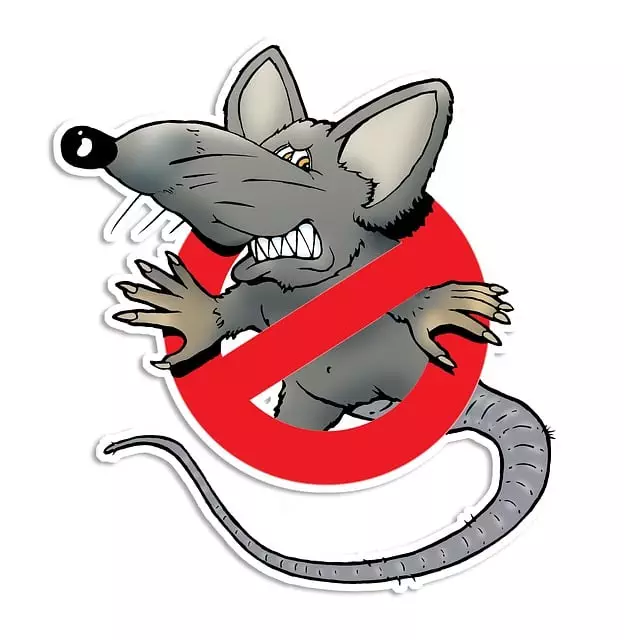Rodent infestations pose significant challenges due to the agility and habits of mice and rats, making professional rodent control crucial. Local experts leverage regional knowledge, technology, and targeted methods for sustainable pest management. Early detection through signs like droppings, gnaw marks, and odd pet behavior is key. Eco-friendly alternatives like natural repellents, physical barriers, and live traps are available for non-toxic rodent control. Professional exterminators use advanced tools, traps, baits, and modifications to eliminate rodents humanely. Proactive measures like sealing entry points, maintaining cleanliness, and proper waste management deter rodents from invading homes and businesses. Positive customer testimonials highlight the success and benefits of professional rodent control services.
“Navigating a rodent infestation can be a daunting task for homeowners. Understanding common pests and their behaviors is the first step towards effective control. This guide delves into the world of local rodent control experts, highlighting their crucial role in managing infestations humanely and efficiently.
From identifying subtle signs of activity to implementing preventive measures, this article offers an all-encompassing approach to rodent control. We explore non-toxic methods, professional tools, and real-life success stories, empowering you to secure your property against these persistent invaders.”
Understanding Rodent Infestations: Common Pests and Their Behavior

Rodent infestations can be a significant concern for homeowners and businesses alike, as rodents like mice and rats are common pests with insidious habits. Understanding their behavior is crucial in implementing effective rodent control measures. These creatures are known for their agility, able to squeeze through tiny gaps and navigate complex environments, making them hard to eradicate once established. They tend to hide in dark, secluded areas, building nests for shelter and raising families.
Each species has unique traits; for instance, mice are excellent climbers and can fit through openings as small as a quarter-inch wide. Rats, on the other hand, prefer to live near water sources and are known for their powerful chewing abilities, which can cause extensive damage to structures. Their behavior includes scavenging for food, leaving behind droppings, and urine marks, all of which serve as clear indicators of an infestation that require professional rodent control services.
The Role of Local Experts in Effective Rodent Control

Local experts play a pivotal role in effective rodent control, offering tailored solutions that address unique regional challenges. Their deep understanding of local ecosystems, weather patterns, and behavioral habits of rodents allows for more precise and sustainable methods. Unlike generic solutions, these professionals employ targeted strategies, ensuring minimal environmental impact while effectively managing infestations.
With access to area-specific knowledge, local experts can identify high-risk areas prone to rodent activity and implement preventive measures accordingly. They also stay updated on the latest technology and products, incorporating innovative tools into their practices. This combination of regional expertise and cutting-edge methods makes local rodent control experts invaluable in maintaining healthy and pest-free communities.
Identifying Signs of Rodent Activity: A Homeowner's Guide

Rodents can quickly establish themselves in homes, often going unnoticed until significant damage occurs. Identifying their presence early is crucial for effective rodent control. Homeowners should look out for specific signs that indicate rodent activity. Chewed cables, holes or gaps around pipes and doors, and strange noises from walls are common indicators. Uneaten food items, gnaw marks on packaging, and distinct odours are also red flags. Regular inspections, especially in areas with potential entry points, can help detect these signs early.
Additionally, homeowners should be vigilant for unusual behaviour by pets, such as excessive barking or scratching at walls. Rodents leave behind droppings, which can be easily identified and may signal an active infestation. Addressing these signs promptly allows for the peaceful coexistence of rodents and homeowners, preventing potential health hazards and structural damage caused by these pesky intruders.
Non-Toxic and Humane Rodent Control Methods

In today’s world, effective yet non-toxic and humane rodent control methods are in high demand. Traditional pest control often relies on harmful chemicals that can pose risks to both humans and the environment. However, there are now numerous eco-friendly alternatives available that offer safe and reliable solutions for managing rodent infestations. These include using natural repellents like peppermint oil or lavender, which rodents find unpleasant, and setting up physical barriers such as steel mesh to prevent their entry into homes and buildings.
Additionally, live traps have gained popularity as a humane option. These traps capture rodents without harming them, allowing for their subsequent release in areas where they won’t cause trouble. Such methods not only protect against rodent damage but also preserve the well-being of these creatures, making them ideal choices for environmentally conscious individuals and families seeking effective yet compassionate rodent control solutions.
Professional Tools and Techniques for Exterminators

Professional exterminators employ a range of advanced tools and techniques to ensure effective rodent control. These include sophisticated detection methods, such as motion sensors and specialized cameras, which help locate hidden entry points and nests. Once identified, experts use a combination of toxic and non-toxic solutions, including traps, baits, and environmental modifications, to eliminate rodents humanely and prevent future infestations.
Their expertise lies in understanding the behavior and biology of different rodent species, allowing them to tailor their approach accordingly. They also stay updated with the latest industry standards and regulations, ensuring safe and environmentally conscious practices. This blend of technology, knowledge, and adherence to best practices makes professional exterminators invaluable allies in maintaining a rodent-free living or working environment.
Preventive Measures: Securing Your Property Against Rodents

Rodent control is a proactive approach that begins with ensuring your property is secure against these pesky intruders. Here are some essential preventive measures to consider. Start by identifying potential entry points around your home or business, such as gaps in walls, floors, or ceilings, and seal them tightly using materials like steel wool or caulk. Keep doors and windows closed and sealed, especially during the colder months when rodents often seek warmth indoors. Regularly clean and maintain your property, removing clutter and food sources that might attract rodents. Store items in airtight containers to prevent any food residues from attracting them.
Additionally, trim bushes and trees away from exterior walls, as these can provide easy access points for rodents. Ensure proper waste management by placing bins securely closed, taking out trash regularly, and not leaving pet food unattended. By implementing these simple yet effective measures, you create an inhospitable environment for rodents, significantly reducing the chances of an invasion and saving you the hassle and cost of a full-scale rodent control operation.
Customer Testimonials: Real-Life Success Stories of Rodent Control Experts

Many customers have shared their positive experiences with local rodent control experts, highlighting successful outcomes and the benefits of professional services. These real-life success stories offer valuable insights into how effective rodent control measures can transform homes or businesses from pest-infested to pest-free environments.
Testimonials often focus on the expertise and swift action taken by these professionals. Customers appreciate the thoroughness of inspections, precise identification of entry points, and targeted treatments that eliminate rodents humanely yet effectively. The use of advanced equipment and eco-friendly methods ensures minimal disruption to daily life while maximizing protection against future infestations.
